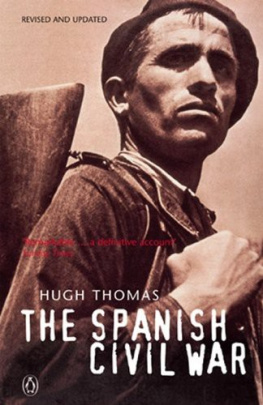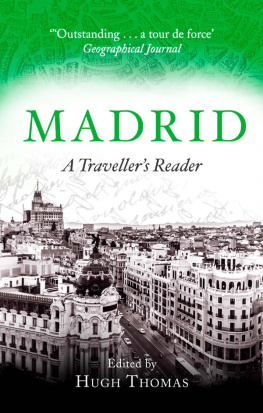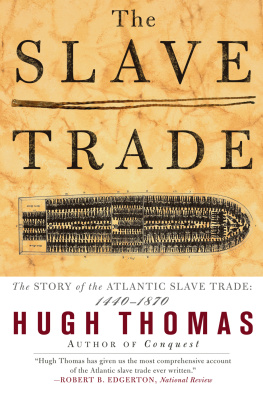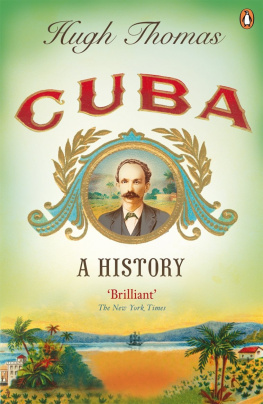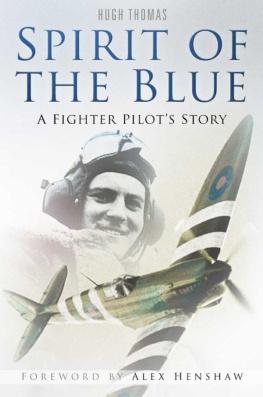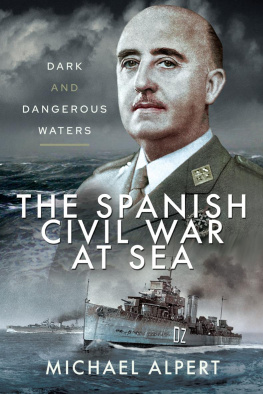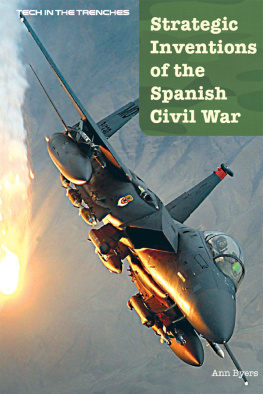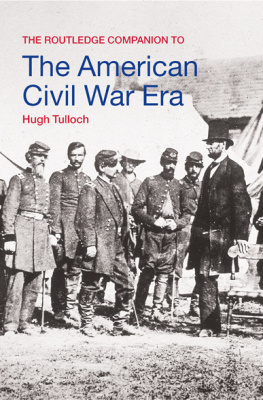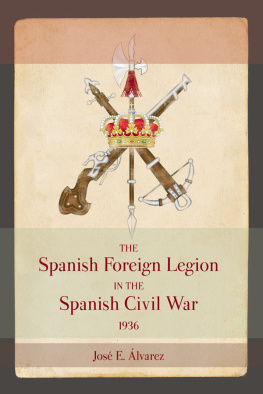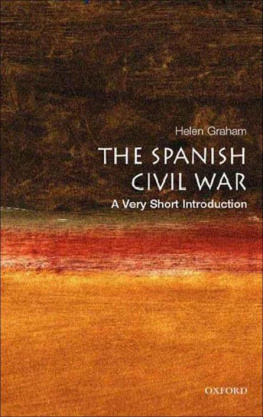Hugh Thomas - The Spanish Civil War
Here you can read online Hugh Thomas - The Spanish Civil War full text of the book (entire story) in english for free. Download pdf and epub, get meaning, cover and reviews about this ebook. year: 0, publisher: Penguin, genre: Art. Description of the work, (preface) as well as reviews are available. Best literature library LitArk.com created for fans of good reading and offers a wide selection of genres:
Romance novel
Science fiction
Adventure
Detective
Science
History
Home and family
Prose
Art
Politics
Computer
Non-fiction
Religion
Business
Children
Humor
Choose a favorite category and find really read worthwhile books. Enjoy immersion in the world of imagination, feel the emotions of the characters or learn something new for yourself, make an fascinating discovery.
- Book:The Spanish Civil War
- Author:
- Publisher:Penguin
- Genre:
- Year:0
- Rating:3 / 5
- Favourites:Add to favourites
- Your mark:
- 60
- 1
- 2
- 3
- 4
- 5
The Spanish Civil War: summary, description and annotation
We offer to read an annotation, description, summary or preface (depends on what the author of the book "The Spanish Civil War" wrote himself). If you haven't found the necessary information about the book — write in the comments, we will try to find it.
The Spanish Civil War — read online for free the complete book (whole text) full work
Below is the text of the book, divided by pages. System saving the place of the last page read, allows you to conveniently read the book "The Spanish Civil War" online for free, without having to search again every time where you left off. Put a bookmark, and you can go to the page where you finished reading at any time.
Font size:
Interval:
Bookmark:




PENGUIN BOOKS
Hugh Thomass The Spanish Civil War (1962) won the Somerset Maugham prize. He is the author of Cuba: Or the Pursuit of Freedom (1971), An Unfinished History of the World (1979), Conquest: Montezuma, Corts and the Fall of Old Mexico (1994), The Slave Trade (1997), and Rivers of Gold (2003) and The Golden Age (2010), the first of two volumes of a trilogy about the Spanish Empire. From 1966 to 1975 he was Professor of History at the University of Reading. He was Chairman of the Centre for Policy Studies in London from 1979 to 1991, and he became a life peer as Baron Thomas of Swynnerton in 1981. He has been given the Arts Council Prize for history (1980), the Gabarrn prize (2008), the Calvo Serer prize (2009), the Nonino prize (2009) and the Boccaccio prize (2009), while the All Party Parliamentary Group on Archives and History awarded him in 2011 a prize for a lifetime achievement for services to archives and history. He was made a commandeur of the order of Arts and Letter in France in 2008, he was given the Grand Cross of the order of Isabel the Catholic in Spain in 2001, and the Order of the Aztec Eagle in Mexico, 1994.
Halfway through 1957, I was approached by a literary agent, James Macgibbon, then in the famous firm of Curtis Brown. A mildly left-wing, engaging, gentleman-publisher who had once been the founding chairman of the firm Macgibbon and Kee, James asked me to lunch at the Savile Club but I arrived rather late and we walked along to the Connaught Hotel instead. Here he told me that the conclusion of my novel The Worlds Game, where the hero goes out to fight in Israel, had reminded him of other such adventures, such as those of the Spanish Civil War. It so happened that an American publisher whom he knew, Cass Canfield Junior (son of the great publisher Cass Canfield who had re-created Harper Brothers), wanted to commission a book about the Civil War for Coward McCann, the firm for which he worked. Would I be interested in putting in for the commission? If so, I would have to write an outline of the book. I agreed.
By August my outline was ready. Cass Canfield, a man about ten years older than I, liked it and commissioned me for Harpers, which he had James Macgibbon and Douglas Jerrold, what a strange alliance of sponsors to have! Cass on behalf of Harper Brothers offered me an advance of $300, Eyre and Spottiswoode one of 250. I thought that I was made.
I worked on the history of the Spanish war between the summer of 1957 and the spring of 1961, beginning with a consideration of the international side to the affair. I had available the documents of the German foreign office which had been published in the usual series in 1951 but which no one had used. The Italian side could be grasped by reading not only some official papers but the diaries for the late Thirties of Count Ciano, whose widow Edda I had once met in Cambridge. For France, I had some parliamentary papers which included a reflection by the French military attach in Madrid in 1936, a colonel Morel, who had said to Lon Blum something to the effect of Jai seulement une chose vous dire, je peux vous assurer, un roi de France ferait la guerre (I have only one thing to say to you: I can assure you that a king of France would have gone to war). The English side and the origins of the famous Non-Intervention Committee were more difficult to tie down, but I did eventually find some Foreign Office documents. The non-intervention papers were still confidential then but I discovered that there was a version freely available in Holland. I did not read the papers of the Western department in the Office, though had I done so I should have found minutes there signed by the spies Donald Maclean and John Cairncross. From a good selection of Americas diplomatic papers I found out exactly what Ambassador Claude Bowers had in the Thirties been telling President Roosevelt. Russia was, of course, far more difficult to know about but numerous ex-Communists and others, even some Russian military commanders, had written about events they had witnessed.
I also met some survivors from the diplomatic arena of the time. My great adventure was dinner in Buenos Aires with Johannes Bernhardt, the German businessman who had visited Hitler in July 1936 and asked him to help Franco. Though he had become a general in the SS, he was quite the opposite from what I had expected; he was a melancholy East Prussian who passed much of his time with me regretting the Russian conquests of the landscapes of his youth. He took a letter from Franco to Hitler, which Bernhardt said was infantile in style. Perhaps for that reason it seems never to have been published.
I never found an adequete Italian equivalent to Bernhardt despite visiting Italy often. I did find valuable the testimony of the Spanish ambassador to Paris in 1936, Juan de Crdenas, a diplomat of the old school who subsequently became Spanish representative and then ambassador in Washington. At the start of the Civil War he made a request on behalf of the Republic to the French government to buy arms. To his surprise, Lon Blum agreed but Crdenas resigned his post before the transaction could be completed. A most useful collaborator from the Republican side was Pablo de Azcrate, who was ambassador to London throughout the conflict, and was the brother-in-law of Julio lvarez del Vayo, Republican foreign minister from 1937 to 1939. I met Azcrate (by then retired) in 1958 in Geneva, where I was working for the United Nations Association. During many conversations at his home in rue Hodler, Azcrate reminisced about the Spanish Republican government, and showed me his memoirs (later published by his son). He told me that in 1936 Winston Churchill had expressed his determination to be neutral in the Civil War since both sides had imbrued their hands in blood. Blood, blood, blood, he had exclaimed when he met Azcrate, whose hand he refused to shake when presented to him by Lord Robert Cecil.
I established good relations with people from all sides of the political spectrum in the Civil War. On the Right, with Don Angel Herrera, editor in the Republic of the Catholic newspaper El Debate, who, by the time of our meeting in 1959, had become a cardinal and bishop of Mlaga; with Carlos Martnez Campos, Duque de la Torre, who had commanded the artillery on the nationalist side and became tutor and praeceptor to Don Juan Carlos; with Manuel Fal Conde, the Carlist leader (debilitated by a stroke by the time I met him in Seville with his son). The generous historian of Carlism, Melchor Ferrer, gave me a mountain of fascinating unpublished material relating to the role of Carlists in the Civil War, and he assured me that the unexploded bomb in his fireplace had been dropped by the reds on the Virgin del Pilar in Saragossa. It was actually dropped by the newspaperman Frank Jellinek, so the latter told me. I visited Dionisio Ridruejo, the most cultivated of Falangists who had long since quarrelled with Franco (and who still seemed to favour him in a roundabout way), at his house in Madrid. I was also very friendly with Beltran Domecq, a despatch rider for Franco (in the summer holidays from Downside), who had in September 1936 driven into Oropesa and to his horror found the bodies of ten nuns lying dead and disfigured in the cemetery there.
Font size:
Interval:
Bookmark:
Similar books «The Spanish Civil War»
Look at similar books to The Spanish Civil War. We have selected literature similar in name and meaning in the hope of providing readers with more options to find new, interesting, not yet read works.
Discussion, reviews of the book The Spanish Civil War and just readers' own opinions. Leave your comments, write what you think about the work, its meaning or the main characters. Specify what exactly you liked and what you didn't like, and why you think so.

